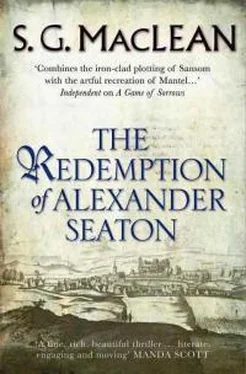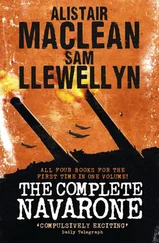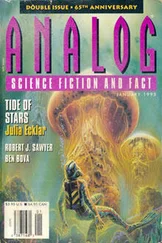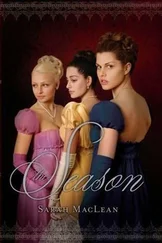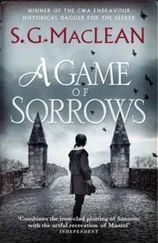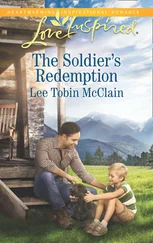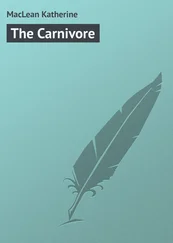I laughed a little. I did not want to be drawn too far into this line of conversation. ‘I think you might have better luck were you to study the fine cut of his clothing, the size of his house, the number of his adherents.’
The painter was not convinced. ‘Such things might tell me much about his fortunes these last few years, but it is his face that will tell me of the man.’ He regarded me for a moment, his head tilted slightly to the side. ‘I think there are things your face can tell me.’
Vanity overtook me and I was aware of a strong need in myself to know what others saw when they looked upon me.
‘What things?’
He motioned me to come closer to him and I sat before him at the window seat. ‘I know from my wife that you are a schoolteacher, an undermaster in a burgh grammar school. There is intensity, earnestness in your eyes, yet you say little. I think – though I may be wrong – that you are a man of great learning. If so, you seem too old for your current station in life. What age are you? Thirty-four, thirty-five?’
‘I am in my twenty-seventh year.’
He nodded, biting his upper lip. ‘Then you are younger than you look. And you are not of Banffshire stock – too tall and spare of build, although the gauntness, I think, comes from self-neglect and not nature; and your eyes … they have a quality in their grey – almost green, in this light – that is not found hereabouts. And your hair is too dark – like an islander, or some of the Irish. Am I close to the truth or have I covered myself in folly?’
‘I am of Banffshire stock, for my father and his father and back for many generations hale from that part of the country, but my mother was an Irishwoman, of native Irish lineage. You are right also in that I am too old to be an undermaster in a school – I had hoped to do other things with my learning, but that was not to be my fate, and–’
He shrugged. ‘And you do not wish to speak of it to a man who but twenty minutes ago was a stranger.’ The painter saw more than he would own. I waited another five minutes while he penned a reply to the provost, then took my leave of him. As I was about to descend the stair he said, ‘Mr Seaton. I hope to see you again in Banff. If you would permit it, I would gladly paint your likeness – as a study. Yours is not a blank canvas.’
I had planned to spend the afternoon studying more closely the list I had got from David Melville, the bookseller, of books he was commanded by the council to supply to the grammar school. I did not want the scholars of Banff to be disadvantaged in their trial for a bursary. My mistake, once back at William’s house, was to lay myself down on my bed to work, rather than sitting at the table. I was soon asleep. I was awoken in the late afternoon by a familiar voice in my ear.
‘Oh, Alexander, Alexander, make haste; you are late for the lecture.’ I jumped out of bed, scattering books and papers around me as I did so, and it took me near a full minute to understand it was now 1626, and not 1618, and that I was no longer a student in the King’s College, in peril of the ire of my professors. As I came, with little dignity, to my feet, I was greeted by the broad smile of William Cargill. ‘You have grown lazy in your old age, Alexander. You were never one for backsliding. Do you teach your scholars in the afternoon at all – or do you have them plump your pillows instead?’
I stooped to pick up the fallen papers. ‘In the mornings I teach them their grammar and to fear God; in the afternoons I teach them to mistrust lawyers with soft linen.’
He laughed and sat down on the crumpled bed. Then he looked at me in seriousness. ‘You are a man exhausted, Alexander. Must you really return to Banff so soon? Can you not stay here with us a while longer? We can make you well – give you food, rest and friendship.’
I avoided his searching gaze and busied myself with tying the strings on my book covers. ‘You are kind, William, but I do not starve in Banff, and a man, even a fallen man, must work. And,’ I looked up at him now, ‘there is also friendship there, different from ours, I suppose, but it sustains me.’
‘I do not pretend to be a Jaffray, Alexander. I know he has kept you where you might have fallen further – he has been a rock to you. But you are a young man still, and he no longer young, and you need to look at the world again with the eyes of a young man, I think. There are other pathways ahead of you; there are still choices for you to make.’
‘My choices have proved poor ones, and the arrogance and folly with which I disported myself as a young man have brought me great shame. I must accept the judgement on me.’
‘That day is not in this world. There is life yet in this world, and it is not condemned by God.’
I gripped his hand. ‘I do not know how to find it, William. It is not here, not yet, if it is to be at all. I must be penitent and, you know me for no papist, but I must do my penance as it has been given to me. Besides,’ I said, wishing to draw the subject to a close now and for all, ‘if I am not in Banff in four days’ time, the provost will have me slung in chains in the tolbooth.’
William took me to be in jest at first, but gradually I made him understand that I was not. I had told him nothing of the murderous business of Banff, or the commission to Straloch that I carried in my pocket. I had not even asked him yet for his uncle’s notebooks – having told him nothing of the cause of my request. But I told him all now – I told him of Charles Thom and Marion Arbuthnott, and of the blow Charles’s infatuation had been dealt by the return of the provost’s nephew. I held nothing back – not my own shame at ignoring, wilfully mishearing the pleas of the dying man in the storm, nor the grotesque sight that greeted me at my desk the next morning. I told him of the firm belief of Jaffray and the apothecary Arbuthnott as to the manner of the poisoning that procured Patrick Davidson’s death, and William promised me immediately that I should have the notebooks or any other thing I wished of his uncle’s to take back to the doctor in Banff. And I told him of the speed with which the finger of accusation had been pointed at Charles, on the basis of little but innuendo and gossip. William listened to all without interruption. ‘And when does the sheriff sit?’ he asked.
‘A week from tomorrow. There is but a week to save Charles from a dance on the Gallow Hill.’
William looked at me hesitantly. ‘You are not suspected yourself, though?’
‘No, thank God, it appears I am not.’
William was troubled, his lawyer’s mind not satisfied. ‘It is odd though, is it not, when it was your schoolroom Davidson was found in?’
I considered. In my determination to be the means of releasing Charles from the tolbooth, the question had not entered my head. I thought on it now. I had no motive, of course, but in a town such as Banff one could always be found. I had no knowledge of poisons – but then Charles Thom had no knowledge of poisons either. I felt a kind of dread begin to seep through me, and my mind go blank in a sudden white wave of fear, as though I was trapped in a room without window or door. For one who claimed to value his life so little, I found myself confronted with the terror of death.
‘William, I do not know why I am not suspected. Had you been there, would you have suspected me?’
He looked at me straight, unflinching. ‘We have been friends many years, and I would swear on my life that you would kill no man in cold blood, but had I been there, and had I not known you as I do, I would not have discounted you.’
‘But William, I never knew him. What reason could I have for killing the apothecary’s apprentice?’
His answer offered little by way of comfort. ‘Whoever killed Patrick Davidson had a reason that has not yet been guessed at.’ The bell of St Nicholas Kirk tolled five times. The silence that followed was broken by the sound of Elizabeth’s voice calling to us from below.
Читать дальше
